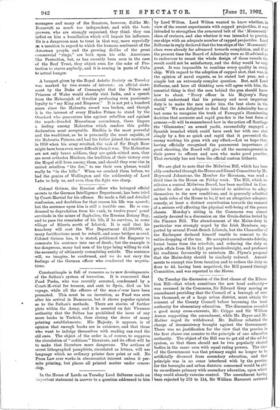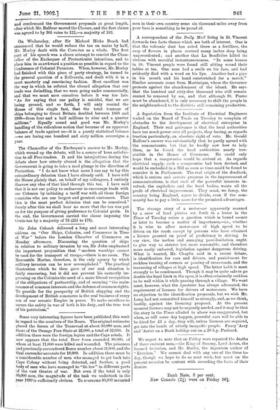On Tuesday the discussion of the first clause of the
Educa- tion Bill—that which constitues the new local authority— was resumed in the Commons, Sir Edward Grey moving an amendment providing that the Council of a borough of over ten thousand, or of a large urban district, must obtain the consent of the County Council before becoming the local authority for elementary education. The discussion revealed a good many cross-currents, Mr. Cripps and Sir William Anson supporting the amendment, while Mr. Bryce and Mr. Mather urged its withdrawal. Mr. Balfour rebutted the charge of inconsistency brought against the Government. There was no justification for the view that the proviso in the first clause ran counter to the principle of one education authority. The object of the Bill was to get rid of the ad hoe system, so that there should not be two popularly elected bodies in the same area with equal rating powers. The view of the Government was that primary ought no longer to be artificially divorced from secondary education, and that principle was in no sense interfered with by the proviso, for the boroughs and urban districts concerned would be able to co-ordinate primary with secondary education, upon which they could already exercise control. The amendment having been rejected by. 272 to 114. Sir William Harcourt reviewed
and condemned the Government proposals at great length, after which Mr. Balfour moved the Closure, and the first clause was agreed to by 305 votes to 122,—a majority of 183.







































 Previous page
Previous page